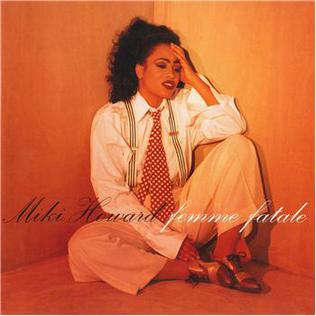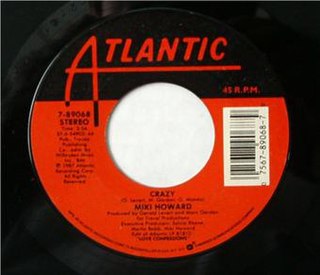
The terms A-side and B-side refer to the two sides of 78, 45, and 331⁄3 rpm phonograph records, or cassettes, whether singles, extended plays (EPs), or long-playing (LP) records. The A-side usually featured the recording that the artist, record producer, or the record company intended to receive the initial promotional effort and then receive radio airplay, hopefully, to become a "hit" record. The B-side is a secondary recording that has a history of its own: some artists released B-sides that were considered as strong as the A-side and became hits in their own right. Others took the opposite approach: producer Phil Spector was in the habit of filling B-sides with on-the-spot instrumentals that no one would confuse with the A-side. With this practice, Spector was assured that airplay was focused on the side he wanted to be the hit side.

20 Greatest Hits is a compilation album featuring a selection of songs by The Beatles that were number one singles in the UK and US. It was released on 11 October 1982 in the United States and 18 October in the United Kingdom and marked the 20th anniversary of The Beatles' first record release, "Love Me Do," in the UK in October 1962. 20 Greatest Hits was the last Beatles album to be released with variations between the US and UK versions.

"I'm Gonna Make You Love Me" is a soul song most popularly released as a joint single performed by Diana Ross & the Supremes and The Temptations for the Motown label. This version peaked for two weeks at #2 on the Hot 100 in the United States and at #3 on the UK Singles Chart in January 1969.
A maxi single or maxi-single is a music single release with more than the usual two tracks of an A-side song and a B-side song.

"Until You Come Back to Me " is a song written by Morris Broadnax, Clarence Paul, and Stevie Wonder. The song was originally recorded by Stevie Wonder in 1967, but his version was not released as a single and did not appear on an album until 1977's anthology Looking Back. The most well-known version of this song is the 1973 release by Aretha Franklin, who had a million-selling top 10 hit on Billboard charts. The song reached no. 1 on the R&B chart and no. 3 on the Hot 100 chart in 1974. It became an RIAA gold record.

"The Flame" is a power ballad written by British songwriters Bob Mitchell and Nick Graham. The song was first offered to English singer Elkie Brooks, who turned it down, and was then released by Cheap Trick, for whom it was a hit single in 1988. The song appeared on the band's Lap of Luxury album.

Femme Fatale is the fourth studio album by American R&B/jazz singer Miki Howard. Released in 1992 under Giant Records, the album peaked at No. 110 on Billboard 200 and No. 7 on Billboard's Top R&B Albums chart. The first single from the album, "Ain't Nobody Like You", reached No. 1 on the R&B Singles chart, her second number one on the chart.

Miki Howard is the third studio album by American R&B singer Miki Howard, released in 1989 on Atlantic Records. The album peaked at No. 4 on the Billboard Top R&B Albums chart. Howard scored her first number-one song with the lead single released from the album, "Ain't Nuthin' in the World", on the Billboard R&B Singles chart.

"Come Share My Love" is a song by American R&B singer Miki Howard. It is the lead single from her debut studio album of the same name. The hit song peaked to No. 5 on Billboard's Hot Black Singles chart in 1986. Although it failed to even bubble under the Billboard Hot 100, it did reach #38 on the Adult Contemporary chart, becoming Howard's only charted single there. Howard become a known name in R&B music, by early 1987 another track from the album, "Love Will Find A Way" was receiving modest airplay on U.S. R&B radio stations.

"Love Under New Management" is the second single released from the 1989 self-titled album by American R&B singer Miki Howard. The song reached its peak of No. 2 on Billboard's Hot R&B Singles chart on March 24, 1990. The song held that position for two weeks and propelled the album to No. 4 on the Top R&B Albums chart, Howard's highest charting album. The song reached #89 on Billboard's Hot 100 chart.

Love Confessions is the second studio album by American R&B singer Miki Howard. Released in 1987 under Atlantic Records, the album peaked at No. 145 on the Billboard 200 and No. 13 on the Billboards Top R&B Albums chart.

"Crazy" is a song by American R&B/soul singer Miki Howard. Released in 1988, as the third single from Love Confessions. "Crazy" peaked to #38 on Billboard's Hot R&B Singles chart. The song was written and produced by Marc Gordon and Gerald Levert, of R&B group LeVert.

"Come Back to Me Lover" is a song by American R&B singer Miki Howard. Released as the third single from Howard's debut album, Come Share My Love, the single peaked at No. 33 on the Billboard's R&B Singles chart in 1987. "Come Back to Me Lover" was Howard's third top 40 hit on the U.S. R&B chart.

Love, Life and Feelings is the 21st studio album from Shirley Bassey, released in 1976 on the United Artists label. The album peaked at #13 in the UK album chart, and charted at #149 in the Billboard 200. Love, Life and Feelings was awarded silver record status by the British Phonographic Industry, with sales of more than 60,000 copies. Features covers of contemporary pop songs from the late 1960s and early 1970s, such as "Alone Again (Naturally)" the 1972 UK #3 single from Gilbert O'Sullivan and "The Way I Want to Touch You" from Captain & Tennille alongside "What I Did for Love", from the musical A Chorus Line written by Marvin Hamlisch.
But I Love You is a 1993 song by American R&B singer Miki Howard, released from her album, Femme Fatale. The song written by Howard and Jud Friedman, produced by LeMel Humes, whom worked with Miki on her previous albums. "But I Love You" was double-sided with the album's third single, "Shining Through", released as a double A-side solely in the United States. While not as successful as the preceding single "Release Me", "But I Love You" was a minor R&B airplay hit during the course of 1993, and while there was no music video filmed, it has become one of Howard's classic songs from the album.

"Something I've Never Had" is a song by American R&B/soul singer Miki Howard. Released on October 22, 1996 as a single in support of her album, Can't Count Me Out. The song didn't chart on Billboard's Hot 100 or R&B/Hip-Hop songs; however, it received minor airplay rotation on R&B stations.

Brandon Howard, also known as B. Howard, is an American singer, record producer and songwriter. His album Genesis was released in 2010. Howard was credited as songwriter and producer on the song "I Ain't Gotta Tell You" from Ne-Yo's album In My Own Words, which topped the Billboard 200 chart in 2006. Howard was also credited as a songwriter on "Can't Get Tired of Me" from the album Face Off, a collaborative album by Omarion and Bow Wow, which debuted at number 11 on the Billboard 200 in 2007. In 2016, Howard's single, Don't Say You Love Me, hit number 11 on Billboard's Top Dance charts.
"Looking Back" is a song written by Brook Benton, Belford Hendricks, and Clyde Otis and performed by Nat King Cole. It reached #2 on the U.S. R&B chart and #5 on the U.S. pop chart in 1958.
"Burning Bridges" is a song written by Walter Scott and performed by Jack Scott. It reached #3 on the U.S. pop chart, #5 on the U.S. R&B chart, and #32 on the UK Singles Chart in 1960. It was featured on his 1960 album What in the World's Come Over You.
















